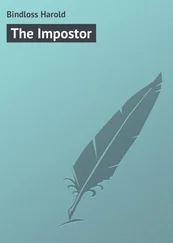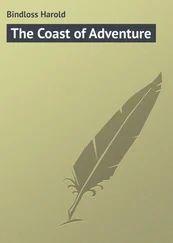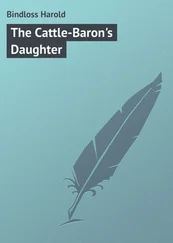Harold Bindloss - Johnstone of the Border
Здесь есть возможность читать онлайн «Harold Bindloss - Johnstone of the Border» — ознакомительный отрывок электронной книги совершенно бесплатно, а после прочтения отрывка купить полную версию. В некоторых случаях можно слушать аудио, скачать через торрент в формате fb2 и присутствует краткое содержание. Жанр: foreign_prose, на английском языке. Описание произведения, (предисловие) а так же отзывы посетителей доступны на портале библиотеки ЛибКат.
- Название:Johnstone of the Border
- Автор:
- Жанр:
- Год:неизвестен
- ISBN:нет данных
- Рейтинг книги:4 / 5. Голосов: 1
-
Избранное:Добавить в избранное
- Отзывы:
-
Ваша оценка:
- 80
- 1
- 2
- 3
- 4
- 5
Johnstone of the Border: краткое содержание, описание и аннотация
Предлагаем к чтению аннотацию, описание, краткое содержание или предисловие (зависит от того, что написал сам автор книги «Johnstone of the Border»). Если вы не нашли необходимую информацию о книге — напишите в комментариях, мы постараемся отыскать её.
Johnstone of the Border — читать онлайн ознакомительный отрывок
Ниже представлен текст книги, разбитый по страницам. Система сохранения места последней прочитанной страницы, позволяет с удобством читать онлайн бесплатно книгу «Johnstone of the Border», без необходимости каждый раз заново искать на чём Вы остановились. Поставьте закладку, и сможете в любой момент перейти на страницу, на которой закончили чтение.
Интервал:
Закладка:
"Well, I ate some sandwiches I had ready, and stood on. She was plunging wildly and putting her storm-jib into the sea that was getting up; but she was an able boat, and the punt towed pretty well when I'd made an extra rope fast to her."
"You wouldn't find that easy," Whitney suggested, as he pictured the lonely man's struggle to haul up the heavy craft while the yacht on which he must relinquish control rolled with thrashing canvas athwart the combers.
"I let the Arrow come up and dropped the peak. The worst was that I had to lean right out with both hands on the punt while I made the second rope fast, and I nearly went overboard when she lurched. I made it fast, but when we went on I got a shock, for the water was washing up from under the cockpit floor. You see, as she'd shipped two or three combers, I'd thought it was washing down."
"The floorings would be nearly two feet above her bottom planks," Whitney said.
"Yes. It meant she was leaking hard, and I'll admit that rather staggered me, because she'd always been a remarkably tight craft. Well, I hove her to again, lighted the cabin lamp, and pulled up the floorings. This wasn't easy; they were closely fitted and the carpenter had nailed one or two of them down. I can't tell you why he did it, but I tore my hand before I got them loose. You can understand that I had to be quick. She wouldn't lie to well with nobody at the helm, and kept forging up head to wind and falling off again. The way she lurched about threw me against the lockers and once or twice I heard a sea come on board. There was too much water for me to find where it was coming in, and when I crawled out and tried the pump it wouldn't draw, so I went back and felt for the bottom of its pipe. There was a suction-box at the end, and it seemed to be stuffed up with shavings. The carpenter must have thrown them under the floor."
"Rather a curious place to put them!" Whitney commented. "I suppose a shaving had stuck under a valve and stopped the pump. But, as you'd have a grid on the suction-box, how did they get in?"
"I've never found out, but I'd like to meet that carpenter," Andrew replied grimly.
He felt for his pipe and lighted it, and Whitney had to prompt him before he resumed:
"Things didn't look hopeful. It was blowing hard; she was leaking fast, and I couldn't pump her out. I had to make the Ross while she kept afloat. I thought about cutting the punt adrift, but it seemed a waste, and afterward I was glad I didn't. As it was a dead beat to windward, speed was important, and the only thing was to keep her sailing hard and let the seas come on board. There was so much spray flying that I couldn't see the punt astern, but the drag on the tow-lines showed that she was there. Then the old boat began to get sluggish, and it made me savage. She'd brought me through many a stiff blow, and I was fond of her. The Ross light was getting brighter; but a sea that came over the coaming washed out the binnacle lamp when I was ready to make the Sound. If I'd been able to take the light's bearing and look at the chart, I might have sailed her in.
"Well, with the compass gone, I had to run for it blind, and she was so waterlogged that she would hardly steer. Then suddenly she stopped with a shock that threw me from the helm. What had happened was plain, and when the next sea washed over her I pulled up the punt, cut the lines, and fell into the well. She swung away on top of a comber, and I wondered where she'd take me; for there were crags about and the paddles had washed overboard. She was full and waterlogged, but I lay along the deck and she kept right side up until we came ashore on a bank of shingle. Rocks ran up behind it, and there was a gully I couldn't cross at the end of the cove. I pulled the punt up, and spent the night lying behind her out of the wind, when I wasn't tramping about the shingle to keep myself warm. In the morning a coastguard showed me a way up the cliff; and when I came back there later there was no sign of the Arrow ."
Andrew stopped, and for some minutes the silence was broken by the rustle of the flapping topsail and the soft splash at the bows. It had grown dark and the sea was faintly phosphorescent: pale blue and green spangles glimmered down the wake. Ross Island had faded into the black head behind it, but a bright beam of light still glittered across the water.
"On the face of it, the reason you were wrecked is obvious," Whitney said. "The boat began to strain when she was pounding, overpressed with sail, through a steep head sea, and you couldn't pump her out. Besides, as she'd just been hauled up for repairs, a butt may have got started by the hammering or a seam have been left open."
"The carpenter was a good workman," Andrew replied quietly.
"He may have neglected something, for all that. Boats will leak when they're driven hard; pumps get out of order; and a stranger might nail down a floor board you kept loose. The curious point is that all these things should happen together." Whitney paused and smiled. "Of course, if you had some dangerous secret or were heir to a great estate that somebody else wanted, one might suggest a melodramatic explanation."
"I've no secret anybody would give twopence for, and I inherit nothing except a very small annuity."
"Then you'll have to put the series of accidents down to coincidence. Where were you bound for when you came to grief?"
Andrew glanced back toward a stretch of water that still shone faintly among the shadowy hills.
"Up yonder, near the head of Wigtown Bay, to shoot geese. Dick was to come on by train and join me. He's fond of wildfowling, and I took advantage of it to get him away."
"Away from what?"
Andrew hesitated.
"Well, you see, he was inclined to go the pace, and Staffer had some friends at Appleyard just then – clever, amusing men-about-town, who were fond of cards and knew all about the turf. Dick tried to play up to them, and he was losing a good deal of money and drinking rather more than was good for him."
"And his stepfather encouraged his extravagance?"
"Oh, no. Staffer gave him good advice in a cynical, witty way; told him he must pull up because the pace was too hot for a lad. I never quite liked the man, but one must be fair, and he was willing to let me take Dick. In fact, he agreed it was the best thing to do."
"But as it turned out, you didn't take him. Were you much at Appleyard afterward?"
"No. One of Staffer's friends offered me a pretty good post abroad, and everybody thought I ought to seize the chance, but I didn't. In consequence, a kind of coolness grew up and I haven't stayed long at Appleyard since. Dick sends a message and Elsie writes long letters now and then."
Whitney stood up and stretched himself. A rhythmic throb of engines stole out of the silence, and, some distance off, a yellow and a green light moved across the level sea. Overhead, the topsail cut black against the sky, and the water had grown more luminous in the eddying wake. To the east, a thin, silver moon was shining above the dim heights of Cumberland. Tiny ripples lapped the Rowan's side, but the breeze was faint and everything was still.
"The flood will take us to Rough Firth, and we may as well stand on," Andrew said. "You can go below. I'll call you if you're wanted."
Carefully lowering his head, Whitney crept into the small cabin and lighted the lamp. Its illumination showed the oilskins swinging against the forecastle bulkhead, and the narrow table on top of the centerboard trunk, which ran up the middle of the floor. On each side were lockers that served as seats, and two folding cots were strapped against the skin of the boat. Whitney let one down and got into it with his clothes on: he had found that this was prudent when cruising in small vessels. There was a rack, loaded with odds and ends, a few inches above his head; and a smell of tarred rope, paraffin and mildewed canvas came out of the forecastle; but this did not trouble him, and he was soon asleep.
Читать дальшеИнтервал:
Закладка:
Похожие книги на «Johnstone of the Border»
Представляем Вашему вниманию похожие книги на «Johnstone of the Border» списком для выбора. Мы отобрали схожую по названию и смыслу литературу в надежде предоставить читателям больше вариантов отыскать новые, интересные, ещё непрочитанные произведения.
Обсуждение, отзывы о книге «Johnstone of the Border» и просто собственные мнения читателей. Оставьте ваши комментарии, напишите, что Вы думаете о произведении, его смысле или главных героях. Укажите что конкретно понравилось, а что нет, и почему Вы так считаете.












